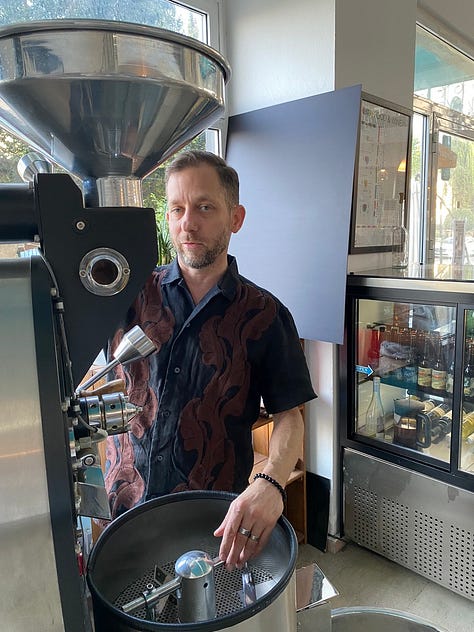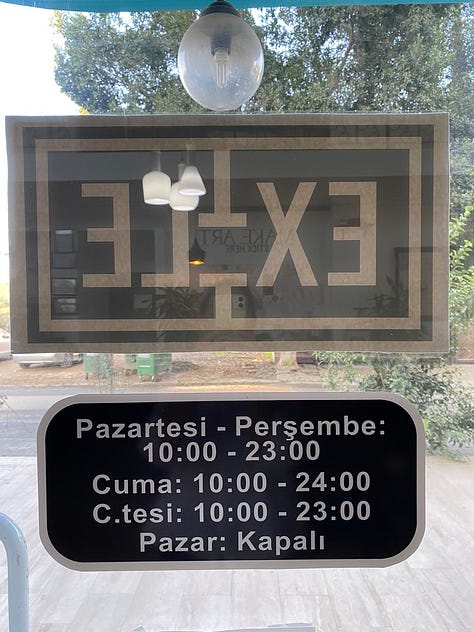Section 60 is a long way from Mary Custis Lee's rose garden where the first soldier to be interned at Arlington National Cemetery is buried. Head south from the visitors center on tree-lined Eisenhower Drive, and never mind the map. It makes Section 60 look a block away when in fact it's several thousands of gravesites away. The walk is long and the quiet of the dead is very loud. On Memorial Day in 2008, we were in search of the newly fallen: the Purple Hearts of Iraq and Afghanistan.

At Site 8410 of Section 60 we find one we've been looking for: U.S. Army Cpl. Matthew Phillip Wallace, born Dec. 27, 1983, died July 21, 2006, recipient of a Bronze Star and Purple Heart, and of this simple epitaph: "Loved by all." Wallace was on patrol with his unit in Baghdad when his Bradley was struck by in IED.
This Memorial Day I’m remembering that trek, sandwiched between reporting trips to Iraq where at one point I had to leave Mosul with an Iraq Army escort as seven car bombs exploded through the city. Today as a country our challenges have changed, yet the blood-stained history remains. It speaks to who we are—good, bad, and ugly—and calls us to honor these dead and their sacrifice, our sons and daughters, amid competing, distorted national narratives.
I’m of two minds at the moment. Memorial Day weekend brings summer, time for a changeup, time when my grandmother would put away her black pumps in favor of white sandals, time for mandatory cookouts, good fiction, races at the pool, and popsicle headaches.
It comes also as we fall weary of the news cycle and a break seems in order. Yet the callous costs of radical changes and U.S.-led recklessness continue to ricochet around the world. It’s important to resist getting numb or deaf to events. Breaks, yes, but also drawing near to ongoing pain, sacrifice, and injustice.
Yesterday my Sunday lunch table included a family from Ukraine. Anastasia gave birth to their youngest two years ago this week in a hospital under attack, as Russia unleashed cruise missiles and an unprecedented barrage on civilian targets in the city.
With his birthday coming up, Anastasia described leaving the maternity ward with her newborn, navigating flights of stairs to the basement only hours after giving birth, sitting under dank pipes and spider webs with her infant tucked under a blanket. To protect the babies, nurses helped her and other mothers shelter away from people crowding into the basement from the streets. The women returned to their beds on the maternity ward only to scramble again to the basement with another wave of bombings. The cruise missiles came in too fast for the air raid sirens to give fair warning, said Anastasia’s husband, who was sheltering with their two older children and keeping track of his wife and new baby by text. Imagine.
As we talked over lunch, Russia was launching one of its largest aerial assaults since the start of the full-scale invasion, deploying an unprecedented number of drones and cruise missiles across Ukraine.
Recent attacks seem to prompt President Donald Trump to change positions on the war, again. He took to task Russian President Vladimir Putin on social media posts and with reporters over the weekend, and suggested he might impose new sanctions on Russia.
Hamas has agreed to a new ceasefire, including the release of hostages, but Israel has not indicated whether it will take steps to end the humanitarian blockade in Gaza. The blockade was aimed at securing the release of hostages, and Christianity Today reports that everywhere in Gaza supplies of food for Christian and Muslim families are dangerously low:
They are surviving on what little canned and dry food they have left, and their health has deteriorated. Elkhouri’s parents, sisters, nieces, and nephews haven’t eaten fresh food or meat for two months, and their water supplies are contaminated. The Christian family, whose heritage in Gaza is centuries old, burns wood or cardboard so they can boil water to make it drinkable.
Germany, one of Israel’s closest allies in Europe, its support enshrined in the post-Nazi state, is reconsidering. “Frankly speaking, I no longer understand what the goal of the Israeli army in the Gaza Strip is,” Merz said in an interview aired on public television. “To harm the civilian population to such an extent, as has increasingly been the case in recent days, can no longer be justified as a fight against Hamas terrorism.”
The couple murdered last week at the Capital Jewish Museum in Washington, D.C., had deep ties to Israel’s Messianic community.
Maurilio Ambrocio, father of five, is an evangelical pastor at a local church who runs a landscaping business, has lived near Fort Myers for 20 years, and is widely known as a community leader. ICE rounded him up as part of a statewide sweep in mid-April, and he’s been housed at a central Florida detention facility for six weeks now. He’s lost 8 pounds and is sick in the crowded living conditions, he reports to his family.
The budget reconciliation bill passed by the U.S. House last week includes $45 million billion for building new detention centers. That’s more than 10 times previous funding and $10 billion more than the entire foreign aid budget via USAID last year.
These facilities are for “family units of aliens” meaning men, women, and children taken into custody housed together. The facilities do not have to be licensed by the state in which they operate. Detention standards are the “sole discretion of the Secretary of Homeland Security.”
If you doubt this is headed toward a wider police state, the next section of the bill contains retention and signing bonuses—about a million dollars’ worth—for any agent, officer, or attorney agreeing to serve two additional years with ICE.
ProPublica has a deep dive on the private contractors making bank on the new detention and deportation system. It’s worth noting its a taxpayer-funded apparatus with bipartisan roots. Companies earned hundreds of millions of dollars during the Biden years housing unaccompanied minors that turned into campaign contributions to Trump.
Remembering the prolific and provocative Scottish philosopher Alasdair MacIntyre.
In Cyprus, a street corner coffee shop that’s become a center for community life and ministry is closing. Exile Coffee and Wine took in refugees of all sorts, mentored baristas into leaders, hosted worship services and open mic nights, and modeled what connected urban ministry can be. It’s been a highlight of recent years for me to follow Ryan Keating’s story and to spend a week in Northern Cyprus with the Exile team. The space will continue to host worship services and a food bank, as the coffee training program moves to a new location. (More great Globe stories like the story of Exile and you can purchase the special issue here.)



With June upon us, let’s hear for a change what you’re reading and where you’re going. Post in comments or email.



I’m reading God’s word every day and also Operatives, Spies, and Saboteurs, by Patrick K. O’Donnell. My favorite uncle was a OSS paratrooper and jumped in behind enemy lines to wreck as much havoc as possible.
He never talked about the bad stuff but about the funny things that happened.
His name is not in the book but I’m very sure his picture is.
God’s word keeps me balanced and history reminds me we probably will not win another war.
Mindy, the CT article made it very clear that Hamas has stolen and hoarded the aid that has come into Gaza. The blockade is meant to change this power structure and renew the aid through private companies, so that it can reach the civilians who need it - for free and not at exorbitant prices at the black market as has happened until now: stolen and resold by Hamas, allowing them to maintain their grip on the population - and giving them a source of income. Jill Nelson wrote an excellent article, sourced from within Gaza. Please honor her efforts to uncover the truth of the situation and be willing to expose the complexity of this war. Armchair politicians may simplify - Jill certainly provided a truthful picture from inside of Gaza. Thank you.